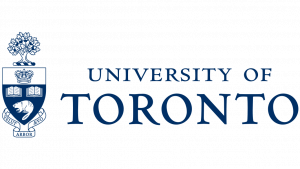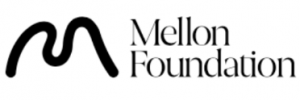Jackman Humanities Institute Early Career Fellow in Community-Exchange Humanities Research
Strange Weather
JHI Early Career Fellow in Community-Engaged Humanities Research
2021-2022
The Jackman Humanities Institute at the University of Toronto will accept applications from recent doctoral graduates for a one-year Community-Engaged Humanities Research (CEHR) Early Career Fellowship intended to foster knowledge exchange between the academy and public. The JHI CEHR Early Career Fellow will be a recent Ph.D. who is establishing a track record in their own discipline and working on a project at the intersection of the academy with one or more extra-academic, public and/or non-profit organizations (e.g., museums, galleries, Indigenous communities, archives, libraries, arts organizations, etc.). The JHI CEHR Early Career Fellow will hold a 12-month residential fellowship at the JHI where s/he will be expected to pursue their own research in their own discipline while developing their public humanities research profile. At the JHI they will pursue their own research in their own discipline, including some work relevant to the JHI’s annual theme; participate in activities with the multigenerational circle of fellows, including weekly lunch seminars and occasional workshops and lectures; and present aspects of their research that engages public and/or community interest at one or more Community-engaged Public Humanities Workshops. In addition, the JHI CEHR Early Career Fellow may participate, as appropriate, in the other “Humanities at Large” pillar activities.
The Jackman Humanities Institute interprets “Humanities” as a broad category, including political theory, interpretive social science, music, and the arts.
The Annual Theme for 2021-2022 is PLEASURE
Whether understood as light amusement or passionate pursuit, as pure enjoyment, sensual gratification, bliss or hedonism, pleasure may be the most agreeable motivator. Yet pleasure has been described as “curious and appalling,” one of modern civilization’s most deadly poisons. Through its diverse manifestations – as intellectual satisfaction and the pleasures of knowledge, across studies of media audiences, addiction, virtual sex – when, and how, has pleasure become divorced from ideology, politics, and power? Uneasiness concerning pleasure resonates readily with humanists’ tendencies to formulate our subjects of study as constellations of problems, but is there space in our discourses for unironic joy?
About Humanities at Large
Humanities at Large is a three-year (2019-2022) initiative, generously funded by the Andrew W. Mellon Foundation, that is intended to promote knowledge exchange. It focuses on six pillar activities:
- Creative non-fiction writing workshops for academic researchers
- Social media training for academics
- Community-Engaged public humanities scholarship
- Partnerships with local high schools
- Talking Books, a public book club experience
- Radio showcase on each year’s humanities research at the JHI
Eligibility
- Applicants must have completed their Ph.D. within five years of the beginning of the fellowship (after 1 July 2016). Applicants who will complete doctoral degree requirements before 1 May 2021 are eligible, but a letter from their supervisor or Chair may be requested to confirm completion. Any award will be conditional on a successful defense. Applicants who received their Ph.D. before 1 July 2016 are ineligible.
- Fellowships are open to citizens of all countries.
- Doctoral candidates and Ph.D. recipients from the University of Toronto are eligible to apply.
- This position is not open to those who hold a tenure-track position.
- The University of Toronto is strongly committed to diversity within its community and especially welcomes applications from visible minority group members, women, Indigenous persons, persons with disabilities, members of sexual minority groups, and others who may further expand the range of ideas and perspectives.
Selection Criteria
We are seeking individuals whose intellectual scope moves between formal academic research and public communications. The JHI is a site for interdisciplinary humanities research conversations, and we are therefore interested in candidates who have an interest in and capacity for presentation of their research across disciplinary and institutional boundaries. Candidates will be evaluated on the basis of commitment to the public humanities knowledge exchange, achievement as appropriate to their career stage, promise of excellence, and relevance of their proposed research project to the Annual Theme.
The Fellowship
The Fellowship provides funding for twelve months, with residency required for nine months (September—May). The stipend is $50,000 CAD plus benefits. Moving expenses are not provided. The JHI will provide an office, University of Toronto Library access, faculty mentoring, and administrative support. Fellows are expected to attend weekly lunches on Thursdays from September through the first week of May. Teaching is not a component of this fellowship, but incumbents may apply for sessional positions in their home disciplines as available.
Procedure
You must have or create an account in the JHI website (https://humanities.utoronto.ca) to apply. You will be asked to upload the following documents in your application:
- Letter of Application (maximum 1000 words)
- Curriculum Vitae (formal, as for academic job applications; include public humanities work)
- Proposal for Public Humanities Research relevant to the annual theme of Pleasure (maximum 3000 words)
- Writing Sample (academic) – a thesis chapter or published article
- Communications Sample (public) – an article for popular press, a blog post, podcast, interview or other media product. Please upload a .pdf format file that contains links and a brief explanation of what each sample is.
This application is located at: https://humanities.utoronto.ca/funding/37809
All documents must be in .pdf format. The size limit for your completed application is 8 mb. If your upload documents are too large, you will see an error message; please reduce the size of your files and try again. You must complete this application in one sitting. It is not possible to edit or revise once you have saved your application.
You will be asked to provide the names and email addresses of two references. Your referees will receive an automated request for their letters, which will be due on Monday 7 December 2020. Please ask your referees to watch for our request email.
Deadline
Application materials: 30 November 2020 at midnight
Reference letters: 7 December 2020
Questions?
For questions relating to the scope and expectations of this fellowship, please contact Professor Alison Keith, Director, at jhi.director@utoronto.ca
For website assistance, please contact Kim Yates, Associate Director, at jhi.associate@utoronto.ca

